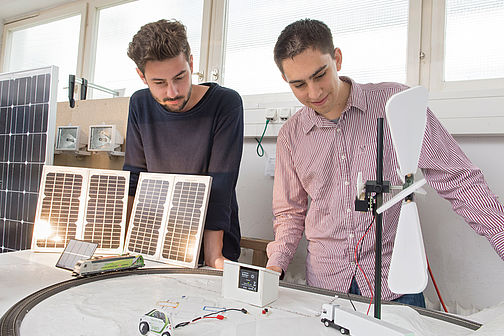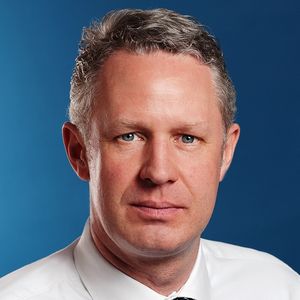General Information
In our modern world, information is being recorded, processed and passed on everywhere and all the time. Information technology is therefore a part of almost all aspects of modern life and will continue to play a crucial role in our mobility and in the consumer products we use - from production to use - in the future. Information technology not only provides the technologies needed for space stations, it also develops the solutions for the computer networks of the future. The IT sector is therefore experiencing extremely high rates of growth and provides outstanding career opportunities in the long term.
To help our students get started on their chosen career, we place great emphasis on giving them a solid grounding in mathematics, software engineering and computer science.
This broad-based training forms the basis for further specialisation in cyber-physical systems. Cyber-physical systems consist of mechanical components, software and modern information technology. Complex infrastructures can be controlled and monitored by linking the individual components via networks such as the Internet. Cyber-physical systems are based on sensors, actuators, networked software and cloud-based services. Sensors provide measurement data from the physical world and transmit them via networks to a service which processes them. This produces control data, which the software transmits to actuators via a communication network. Cyber-physical systems are characterised by a high degree of complexity and are used to realise smart grids, modern production plants or in medical engineering, for example.
The programme’s high level of practical relevance enables students to enhance the knowledge they have acquired. Project work is undertaken in small groups in well-equipped laboratories. A semester of practical study shows students how industrial projects are undertaken and managed in practice.
Continuing education after the bachelor
During your first teaching placement, you will gain an insight into teaching. Do you enjoy teaching in a college or a company context? Or would you rather work as a technical specialist? You can leave this decision until you have obtained your Bachelor’s degree, because this qualifies you for Master programmes in engineering and education theory. The Bachelor of Science in Engineering Education thus not only offers excellent prospects in modern engineering, but also varied career opportunities in further and advanced training.
Would you like to pass on your passion for engineering? Further information on training to teach at vocational colleges can be found at #LIEBERLEHRAMT.
Degree programme leaflet
Engineering Education Information Technology - Electrical Engineering IEP (B.Sc.)



